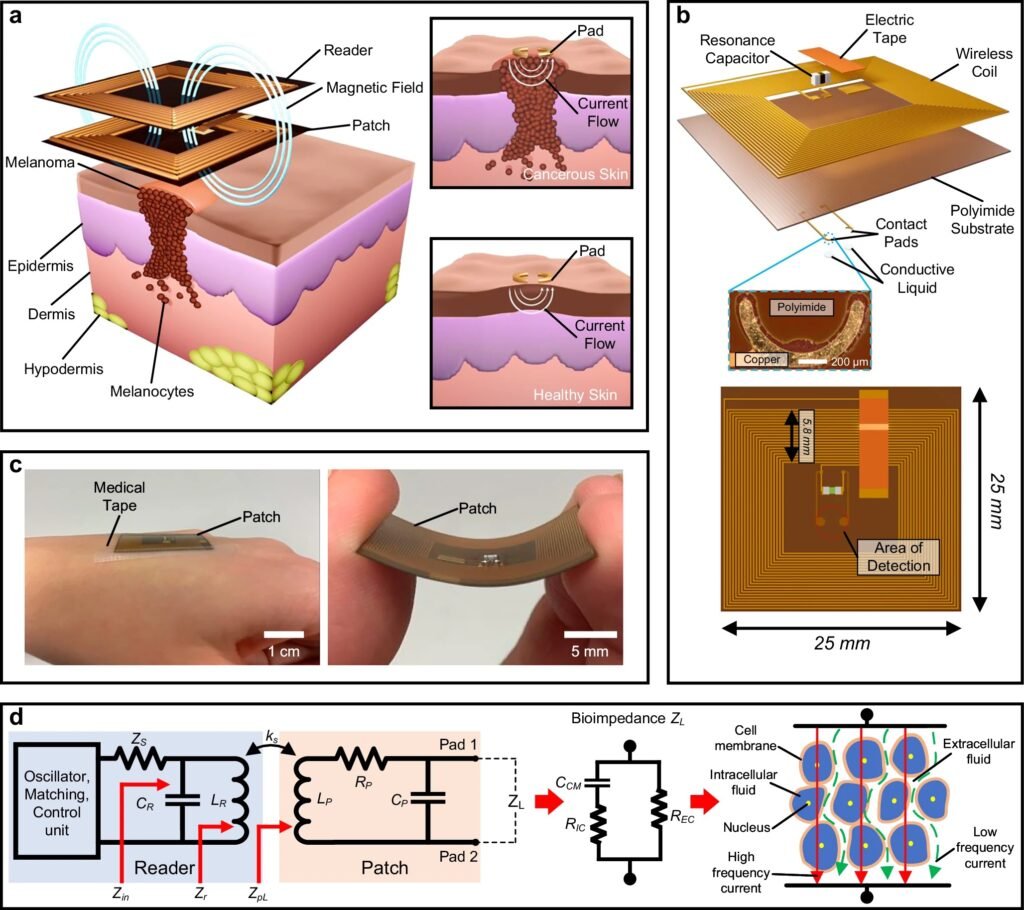Scientists at Wake Forest University School of Medicine have developed a wearable patch that can detect early signs of skin cancer by analyzing biomarkers in sweat. The patch uses a combination of microfluidics and biosensing to identify abnormal protein levels associated with skin malignancies, offering a noninvasive alternative to traditional biopsies.
Skin cancer is the most common cancer in the United States, and early detection is critical for successful treatment. However, current screening methods rely heavily on visual inspection and invasive tissue sampling, which can be uncomfortable and costly. The new patch aims to simplify and accelerate the diagnostic process by providing real-time biochemical feedback.
The device collects sweat through a soft, skin-friendly interface and channels it into a sensor array that detects specific proteins linked to cancerous changes. In preliminary lab tests, the patch successfully identified biomarkers associated with melanoma and other skin cancers. It is designed to be worn comfortably for extended periods and could be integrated into routine health monitoring.
Researchers believe the patch could be especially useful for high-risk populations, such as individuals with a history of sun exposure or genetic predisposition to skin cancer. It may also help reduce the burden on dermatology clinics by enabling at-home screening and early intervention.
Article from Wake Forest Baptist Medical Center: Researchers develop wearable patch for early skin cancer detection
Abstract in npj Biomedical Innovations: Wearable battery-free chip-less patch for bioimpedance measurement of cutaneous lesions

